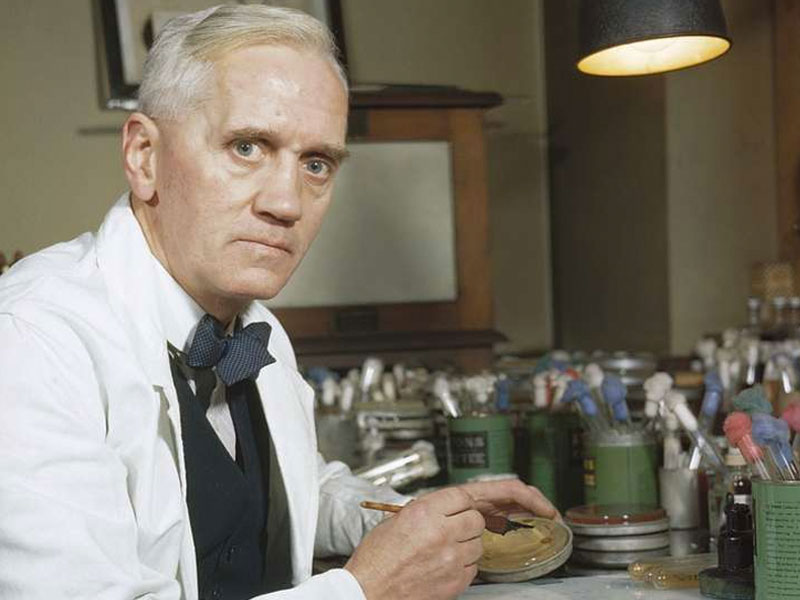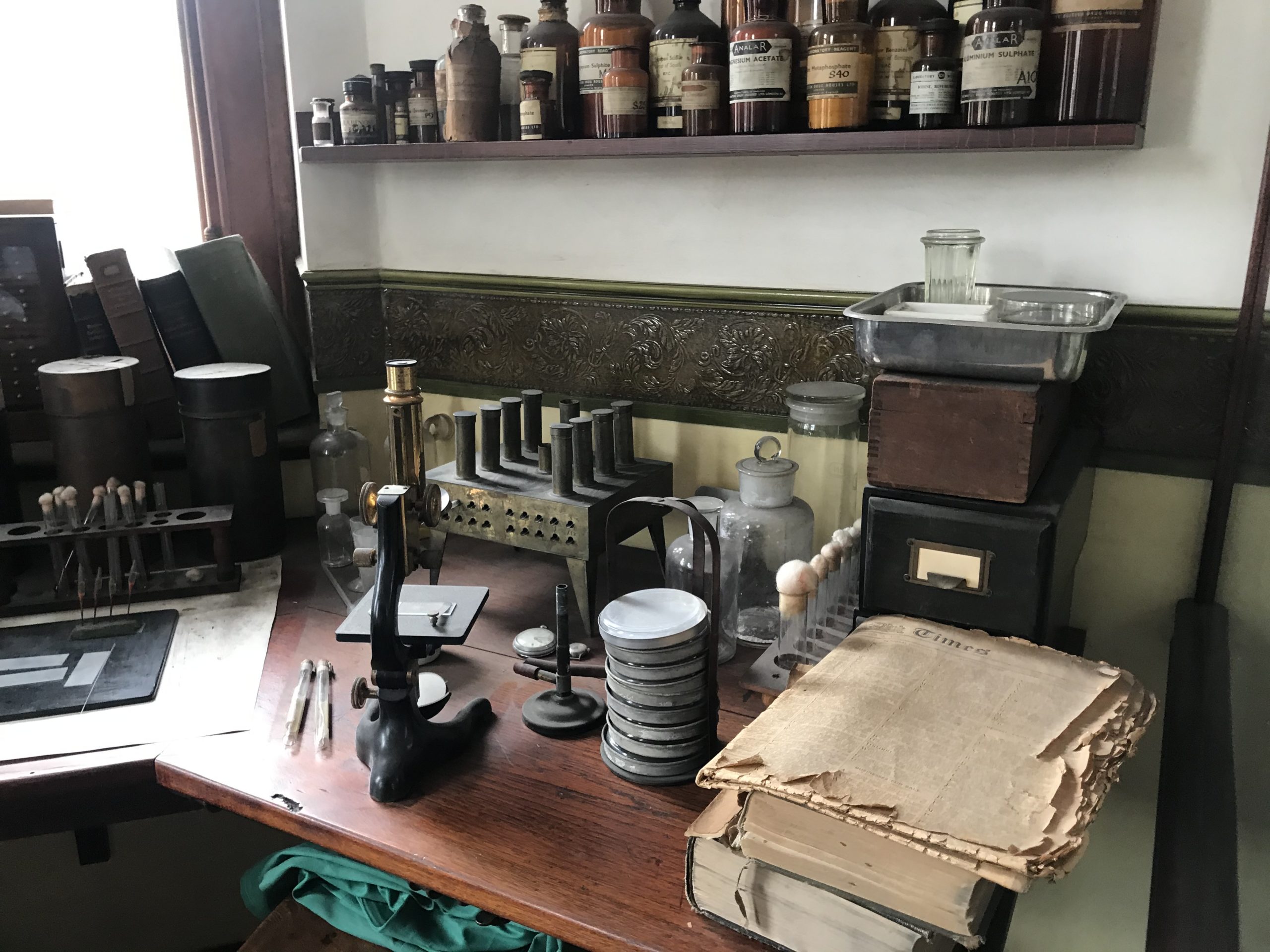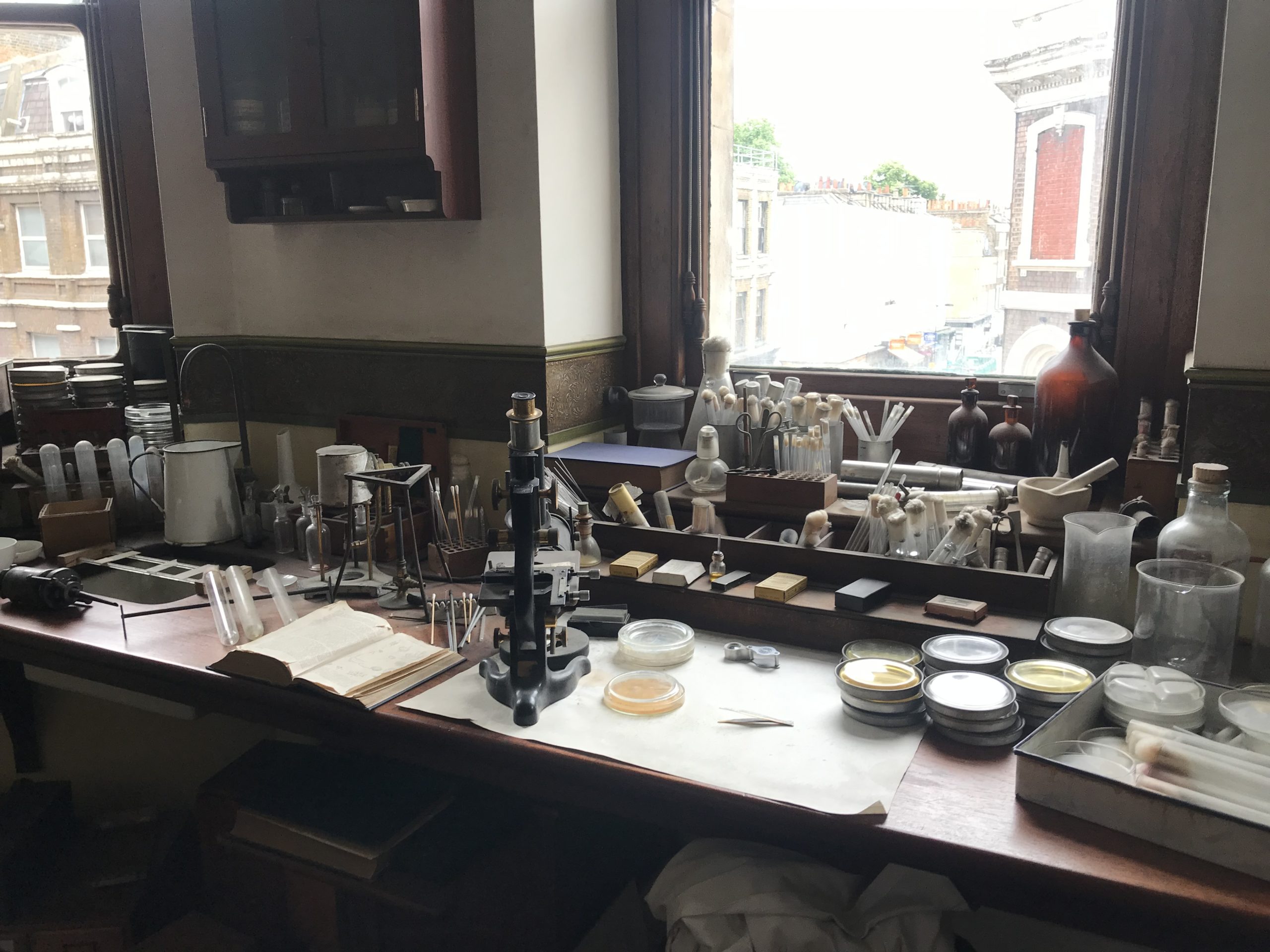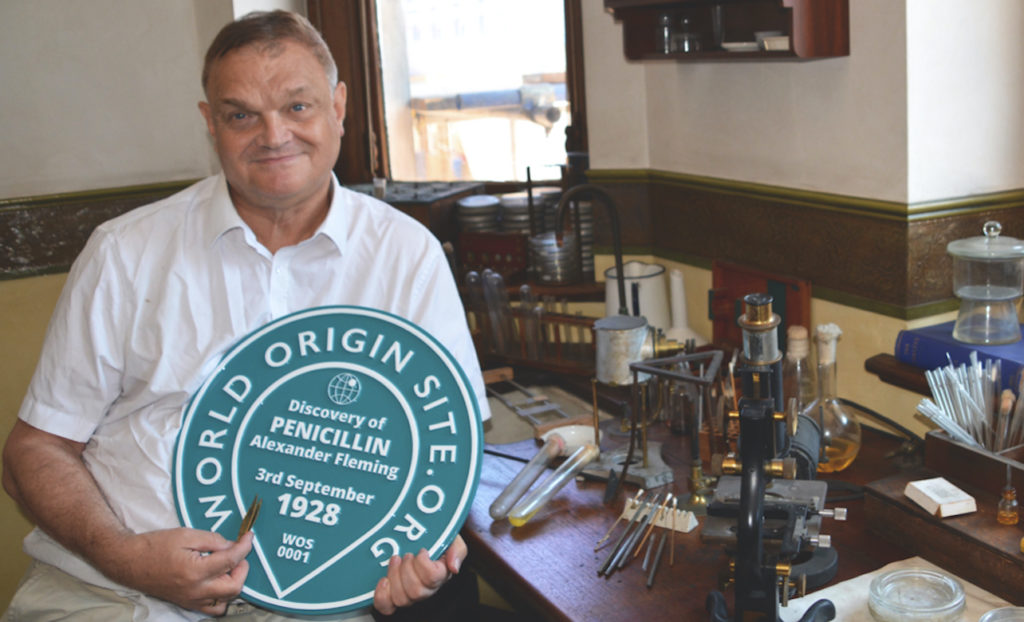WHAT:
Penicillin, the First Antibiotic
WHERE:
St Mary’s Hospital, Paddington, London, UK
LOCATION:
WHEN:
First Discovered 3rd September, 1928
WHO:
Dr Alexander Fleming
DETAILS:
| The discovery of penicillin on 3 September 1928 by Alexander Fleming in his small and cluttered laboratory at St Mary’s Hospital was to initiate a revolution in medicine. The first of the antibiotics to be developed, penicillin offered a means of treating previously life threatening or debilitating bacterial infections and of containing infection which allowed for more intensive and invasive medical and surgical procedures. It has impacted on the lives, health and welfare of everyone living.
Although the discovery of penicillin came about through a chance observation, Fleming’s career had made him receptive to the discovering. Honing his powers of observation in boyhood on a Scottish hill farm, he studied to become a qualified medical doctor and bacteriologist. He also had an imaginative and creative approach to science, one of his hobbies being microbial art, which enabled him to see some significance in something out of the ordinary. In 1921 he had also discovered the enzyme lysozyme which is present in many body fluids which this modest, self-effacing man later said had been his best scientific work. However, lysozyme did not have any therapeutic use but the superficial similarities between it and the action of penicillin attracted Fleming to investigate penicillin further although he soon established that it was not an enzyme. Although he was himself unable to purify and stabilise penicillin, Fleming pointed out that there was a clinical potential, both used topically and systemically, for the treatment of infections. Penicillin was brought into use in the early 1940s by a research team at the University of Oxford led by Howard Florey and including the biochemist Ernst Chain. It proved a life saver in the Second World War. Fleming , Florey and Chain jointly received the 1945 Nobel Prize for medicine for their roles in the discovery and development of penicillin. |
LINKS:
CHAMPION:






